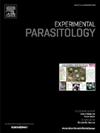Current challenges and future prospects in patients with recurrent cystic echinococcosis; an updated mini review
IF 1.6
4区 医学
Q3 PARASITOLOGY
引用次数: 0
Abstract
Recurrent cystic echinococcosis (RCE) occurs by the spillage of live protoscoleces during unsuccessful surgery or spontaneous rupturing of fertile hydatid cyst. Currently, RCE presents a significant concern within surgical community. Managing RCE cases is challenging due to limitations in diagnostic follow-up, therapeutic pitfalls, emerging drug resistance, and innate immunological responses between host-parasite cross-talk. Recent advances suggest that parasite-derived microRNAs hold promise as biomarkers for early detection and monitoring of RCE. Additionally, combining benzimidazoles (parasito-static) with praziquantel (parasiticidal) in nano-formulation derivatives has demonstrated potential pharmacokinetic synergism, highlighting the need for personalized treatment plans. Optimizing surgical methods and ensuring regular chemotherapy following both conservative and radical surgeries are crucial for minimizing RCE. Furthermore, identifying β-tubulin codons in albendazole-resistant hydatid cyst and the role of toll-like receptor polymorphisms are critical for developing targeted therapies. The insights presented here aim to support specialists in developing effective interventions and preventive measures to reduce and improve patient outcomes in.
复发性囊性包虫病患者目前面临的挑战和未来前景更新的迷你评论。
复发性囊性包虫病(RCE)发生在手术失败或可育包虫囊自然破裂时的活原头节外溢。目前,RCE是外科医学界关注的一个重要问题。由于诊断随访、治疗陷阱、新出现的耐药性和宿主-寄生虫串扰之间的先天免疫反应的局限性,管理RCE病例具有挑战性。最近的进展表明,寄生虫衍生的microrna有望成为早期检测和监测RCE的生物标志物。此外,将苯并咪唑(防寄生虫)与吡喹酮(杀寄生虫)联合制成纳米制剂衍生物已显示出潜在的药代动力学协同作用,这突出了个性化治疗计划的必要性。优化手术方法并确保在保守和根治性手术后定期化疗是减少RCE的关键。此外,鉴定阿苯达唑耐药包虫病中β-微管蛋白密码子以及toll样受体多态性的作用对于开发靶向治疗至关重要。本文提出的见解旨在支持专家制定有效的干预措施和预防措施,以减少RCE并改善CE患者的预后。
本文章由计算机程序翻译,如有差异,请以英文原文为准。
求助全文
约1分钟内获得全文
求助全文
来源期刊

Experimental parasitology
医学-寄生虫学
CiteScore
3.10
自引率
4.80%
发文量
160
审稿时长
3 months
期刊介绍:
Experimental Parasitology emphasizes modern approaches to parasitology, including molecular biology and immunology. The journal features original research papers on the physiological, metabolic, immunologic, biochemical, nutritional, and chemotherapeutic aspects of parasites and host-parasite relationships.
 求助内容:
求助内容: 应助结果提醒方式:
应助结果提醒方式:


